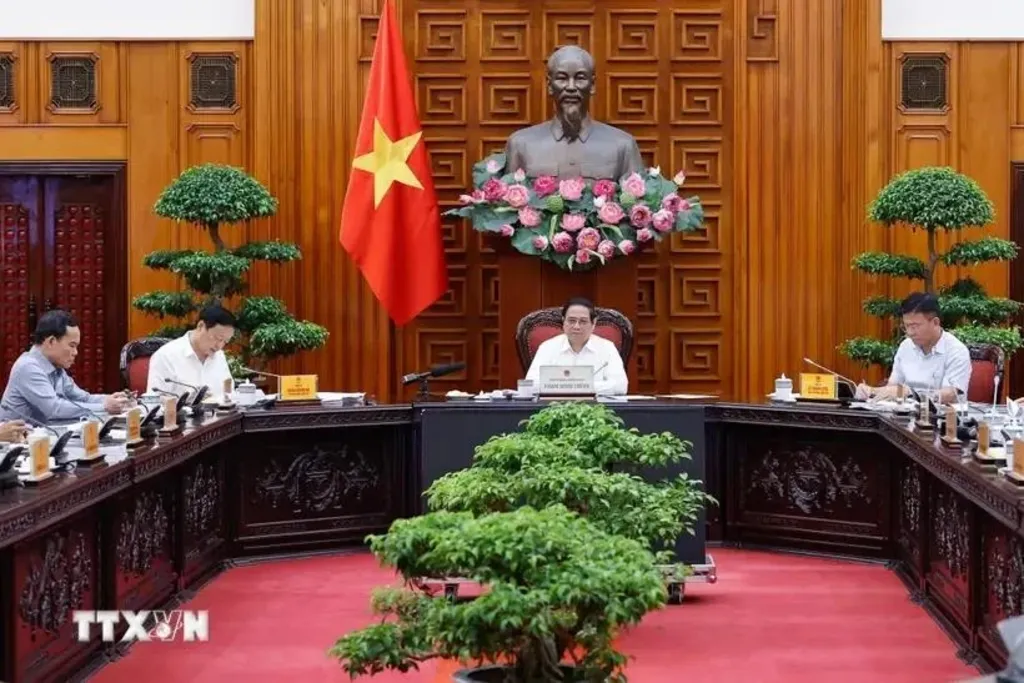 |
| An overview of the meeting__Photo: VNA |
Prime Minister Pham Minh Chinh on July 11 requested relevant ministries and agencies to consult experts and scientists, and learn from international experiences to quickly complete the building of the North-South high-speed railway project.
Chairing a meeting between standing Government members and leaders of ministries and sectors to discuss the investment policy for the project, PM Chinh noted that Vietnam is recognized for its significant potential in logistics development; however, logistics costs remain higher than the global average due to an underdeveloped transportation system. Therefore, the development of transportation infrastructure, including the North-South high-speed railway, will reduce logistics costs, lower prices, and enhance the competitiveness of goods
He stressed the need for innovative and strategic approaches, aiming to complete 1,541km of the railway across 20 provinces and cities within 10 years, targeting 2035 for completion, adding that the project should prioritize the most efficient and shortest routes, designed to operate at a speed of 350km/h.
The construction of the high-speed railway must ensure coherence and connectivity, and utilize and promote the efficiency of the existing transportation systems and means, Chinh said.
Noting that the estimated USD 67 billion investment is huge, the Government leader requested a thorough study of the total investment to ensure appropriateness, with similar projects abroad and Vietnam's unique terrain taken into consideration. He added that funding should be diversified through various sources, including central and local funds, loans, bonds, and corporate funds.
The leader also highlighted the necessity of a modern, digitalized management plan, workforce training, technology transfer, and the development of a railway industry ecosystem.- (VNA/VLLF)









